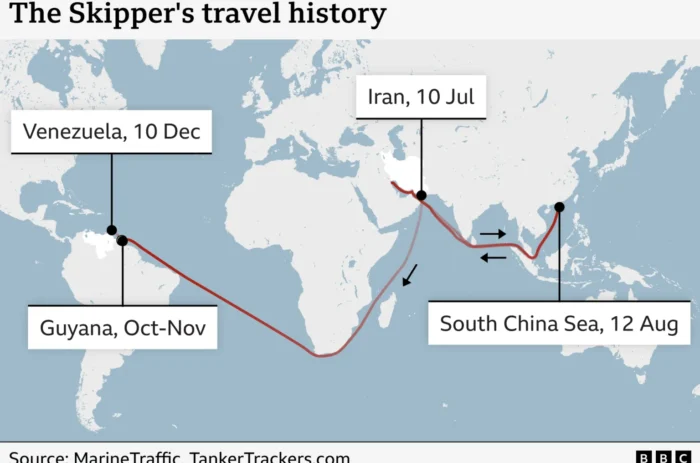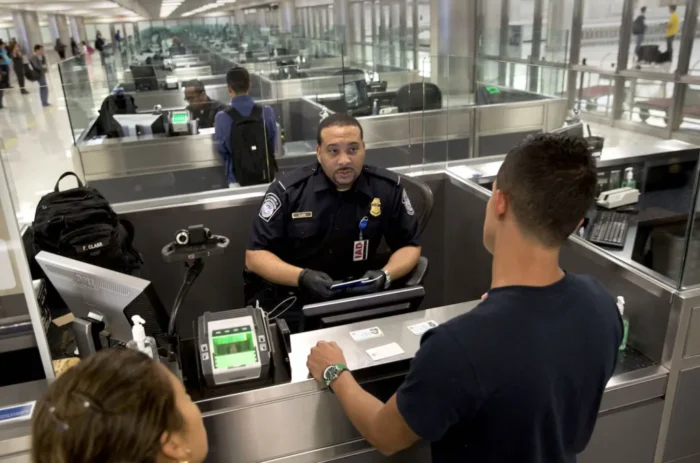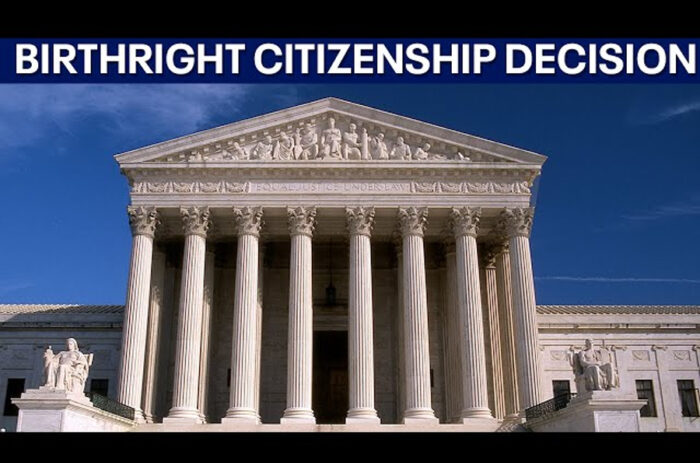redo Jump to...
print Print...
 NOTE: Cyprus is an island about half the size of Connecticut, with a population of about 1.1 million, located in the Eastern Mediterranean south of Turkey.
NOTE: Cyprus is an island about half the size of Connecticut, with a population of about 1.1 million, located in the Eastern Mediterranean south of Turkey.
(by Michele Kambas, Reuters) NICOSIA [Published March 17] – …In a radical departure from previous aid packages, euro zone* finance ministers want Cyprus savers to forfeit a portion of their deposits in return for a 10 billion euro ($13 billion) bailout for the island, which has been financially crippled by its exposure to neighboring Greece. [*the euro zone = the countries belonging to the European Union that use the euro as their unit of money]
The decision, announced on Saturday morning, stunned Cypriots and caused a run on cash machines, most of which were depleted within hours. Electronic transfers were stopped.
The originally proposed levies* on deposits are 9.9 percent for those exceeding 100,000 euros ($129,000) and 6.7 percent on anything below that. [*A levy is a legal seizure of property (or money) to satisfy a tax debt (or debt)]
The Cypriot government on Sunday discussed with (eurozone) lenders the possibility of changing the levy to 3.0 percent for deposits below 100,000 euros, and to 12.5 percent for above that sum, a source close to the consultations told Reuters on condition of anonymity.
The source said the discussions had the “blessing” of [three] of their lenders: from the European Commission, the IMF [International Monetary Fund] and the European Central Bank.
In Brussels, a spokesman for Olli Rehn, the European commissioner in charge of economic affairs, said discussions were still under way in Cyprus.
“If the Cypriot leaders agree on a more progressive scale for the one-time levy, in view of making it fairer for smaller savers and provided this would have the same financial impact, the Commission would be ready to recommend that the Eurogroup endorse such an agreement,” the spokesman said.
The move to take a percentage of deposits, which could raise almost 6 billion euros, must be ratified by parliament, where no party has a majority. If it fails to do so, President Nicos Anastasiades has warned, Cyprus’s two largest banks will collapse.
One bank, the Cyprus Popular Bank, could have its emergency liquidity assistance (ELA) funding from the European Central Bank cut by March 21.
A default [failure to pay] in Cyprus could unravel investor confidence in the euro zone, undoing the improvements fostered by the European Central Bank’s promise last year to do whatever it takes to shore up the currency bloc.
A meeting of parliament scheduled for Sunday was postponed for a day to give more time for consultations and broker a deal, political sources said. The levy was scheduled to come into force on Tuesday, after a bank holiday on Monday. [NOTE: Debate on the bank levy was delayed until 12:00 p.m. EDT on Tuesday 3/19 to buy more time for parliament to build consensus. Banks, shut on Monday for a bank holiday, will remain closed on Tuesday and Wednesday to avert any panic.]
Making bank depositors bear some of the costs of a bailout had been taboo in Europe, but euro zone officials said it was the only way to salvage Cyprus’s financial sector.
European officials said it would not set a precedent.
In Spain, one of four other states getting euro zone help and seen as a possible candidate for a sovereign rescue, officials were quick to say Cyprus was a unique case. A Bank of Spain spokesman said there had been no sign of depositors [withdrawing their savings].
But the chief of Greece’s main opposition, the anti-bailout Syriza party, Alexis Tsipras, blamed the move on German Chancellor Angela Merkel, according to Greek state news agency ANA.
“We must all together raise a shield to protect the peoples (of Europe) from Ms. Merkel’s criminal strategy,” said Tsipras, who wants a pan-European debt conference to forgive debt.
The crisis is unprecedented in the history of the Mediterranean island, which suffered a war and ethnic split in 1974 in which a quarter of its population was internally displaced.
Anastasiades, elected only three weeks ago, said savers will be compensated by shares in banks guaranteed by future natural gas revenues.
Cyprus is expecting the results of an offshore appraisal drilling this year to confirm the island is sitting on vast amounts of natural gas worth billions.
In a televised address to the nation on Sunday, Anastasiades said he had to accept the tax in return for international aid, or else the island would have faced bankruptcy.
“The solution we concluded upon is not what we wanted, but is the least painful under the circumstances,” Anastasiades said.
With a gross domestic product of barely 0.2 percent of the bloc’s overall output, Cyprus applied for financial aid last June, but negotiations were stalled by the complexity of the deal and the reluctance of the island’s previous president to sign.
International Monetary Fund (IMF) Managing Director Christine Lagarde, who attended the meeting, said she backed the deal and would ask the IMF board in Washington to contribute to the bailout.
…….
Many Cypriots, having contributed to bailouts for Ireland, Portugal and Greece – Greece’s second bailout contributed to a debt restructuring that blew the 4.5 billion euro hole in Cyprus’s banking sector – are aghast at their treatment by Europe.
Reprinted here for educational purposes only. May not be reproduced on other websites without permission from Thomson Reuters. Visit the website at Reuters.com.
Questions
1. a) What is the eurozone?
b) What do the eurozone’s finance ministers want those who hold savings accounts in Cyprus to do? Be specific.
c) Why does Cyprus need a loan from the eurozone? (See “Background” below the questions for a more detailed explanation)
2. Cypriots had been assured that savings accounts would be safe. How are savings holders reacting to Saturday’s announcement?
3. How is the Cypriot government attempting to change the percentages of the levy?
4. What will happen if the parliament of Cyprus fails to pass the proposal to take a percentage of people’s savings?
5. a) How will the government compensate those who have had money taken from their savings accounts by the government?
b) Instead of forcibly taking money from all savings accounts, should the government have tried to offer this compensation to the eurozone? Explain your answer.
6. From para. 12-14: “Making bank depositors bear some of the costs of a bailout had been taboo in Europe, but euro zone officials said it was the only way to salvage Cyprus’s financial sector. European officials said it would not set a precedent. In Spain, one of four other states getting euro zone help and seen as a possible candidate for a sovereign rescue, officials were quick to say Cyprus was a unique case. A Bank of Spain spokesman said there had been no sign of depositors withdrawing their savings in that country.”
Would you feel secure hearing assurances from eurozone officials that Cyprus would not set a precedent (establish a pattern for how things will be done in the future) for other countries in the eurozone? Explain your answer.
7. a) Do you think confiscation of private funds by the government to pay off our ever increasing enormous debt could ever happen in the U.S.? Explain your answer.
b) Ask a parent the same question.
Background
THE EUROZONE:
- The eurozone is an economic and monetary union (EMU) of 17 [of the 27] European Union (EU) member states that have adopted the euro (€) as their common currency and sole legal tender.
- The eurozone currently consists of Austria, Belgium, Cyprus, Estonia, Finland, France, Germany, Greece, Ireland, Italy, Luxembourg, Malta, the Netherlands, Portugal, Slovakia, Slovenia, and Spain.
- Most other EU states are obliged to join once they meet the criteria to do so.
- No state has left and there are no provisions to do so or to be expelled.
- Since the late-2000s financial crisis, the eurozone has established and used provisions for granting emergency loans to member states in return for the enactment of economic reforms. (from wikipedia)
ON THE ECONOMY OF CYPRUS:
- Cyprus has close ties with Greece and had invested heavily in Greek bonds. Unfortunately for Cyprus, foreign investors in Greek debt were forced, in 2011, to take a voluntary [cut] of up to 50 percent of the value of those bonds.
- With an economy as thin as Cyprus a loss of that magnitude in the funds it had, essentially, parked for safety sake was more than just a jolt. It threw the economy into a tailspin.
- Why am I bothering you with the Cypriot economic woes? Because of the manner in which the big guns in the European Union – in this case Germany – wanted to structure a $13 billion bailout.
- Here’s what they decided: Individuals who have deposits of at least $130,000 (equivalent) in Cypriot banks will pay what the New York Times called a “one-time tax” of 9.9 percent of their deposits.
- Smaller depositors will have their funds confiscated taxed to the tune of 6.75 percent.
- The Times reported that many of the higher-value depositors are “Russians who have put vast sums into Cyprus’s banks in recent years” but it wouldn’t matter if it they were North Korean generals. A deposit is a deposit for the use of the depositor, not for [German leader] Angela Merkel.
- Naturally as soon as word hit that this “tax” was going to be imposed on Tuesday, there was a run on the banks to get money out of bank vaults and into mattresses where it would be safe.
- Naturally the ATM networks were shut down to prevent the good people of Cyprus (or Russia) from getting to their money before the government could take it away.
- Germany’s Chancellor Angela Merkel said that making the depositors help pay for the bailout is the right thing to do. “That way,” she said, “those responsible will contribute in it, not only the taxpayers of other countries.” …
- My fear is this becomes a standard mechanism for helping to reduce what is known as the “sovereign debt” – the money countries owe.
- Think about what will happen when officials of the Obama Administration come to work this morning and read that the EU could force Cyprus to confiscated legally deposited funds.
- According to the Federal Reserve Bank of St. Louis, as of last Monday there was $6.8 trillion on deposit in U.S. banks.
- No one, not even Barack Obama, would consider taking 100 percent of those deposits, but I can certainly hear the clack-clack-clack of keyboards drawing up the talking points explaining why rich people with deposits of over, say $50,000 should be willing to do their fair share in paying down the national debt.
- Maybe to the tune of a “one-time tax” of, say, 15 percent. That’s not 15 percent of $50,000, it would be 15 percent of whatever you’ve got in the bank – in all your accounts. Maybe throw in those greedy 401(k)s and brokerage accounts that have swollen with the sudden rise in the U.S. stock market.
- Sample Talking Point: If you can afford a 401(k) and $4/gallon gasoline, you’re making too much. (from Rich Galen’s commentary at mullings.com)
THE LEVY ON CYPRUS SAVINGS ACCOUNTS:
- According to a draft copy of legislation, failing to pay up would be a criminal offense liable to three years in jail or a 50,000 euro fine.
- Those affected will include rich Russians with deposits in Cyprus and Europeans who have retired to the island, as well as Cypriots themselves.
- President Anastasiades’s right-wing Democratic Rally party, with 20 seats in the 56-member parliament, needs the support of other factions for the vote to pass. It was unclear whether even his coalition partners, the Democratic Party, would fully support the levy.
- Cyprus’s Communist party AKEL, accused of stalling on a bailout during its tenure in power until the end of February, would vote against the measure. The socialist Edek party called EU demands “absurd.”
- “This is unacceptably unfair and we are against it,” said Adonis Yiangou of the Greens Party, the smallest in parliament but a potential swing vote.
- Cyprus received a “stab in the back” from its EU partners, the daily Phileleftheros said.
- But it and another newspapers highlighted the danger of plunging the banking system into further turmoil if lawmakers sat on the fence. “Even if the final agreement is wrong, if this is not approved by parliament the damage will be even greater,” Politis economics editor Demetris Georgiades said in an editorial. (from the Reuters article)
Daily “Answers” emails are provided for Daily News Articles, Tuesday’s World Events and Friday’s News Quiz.



